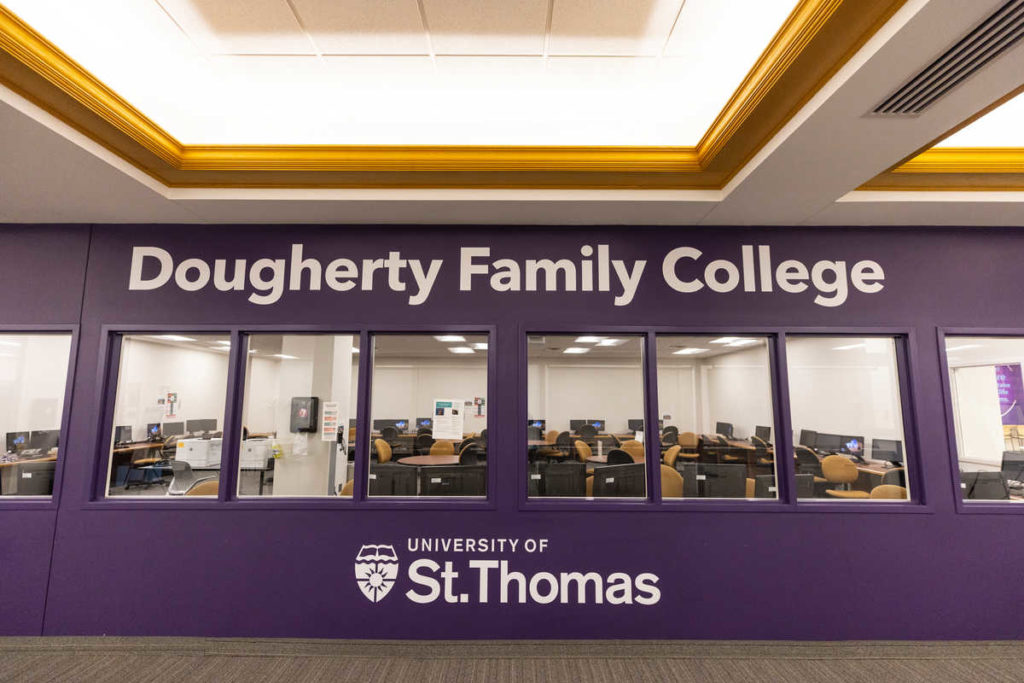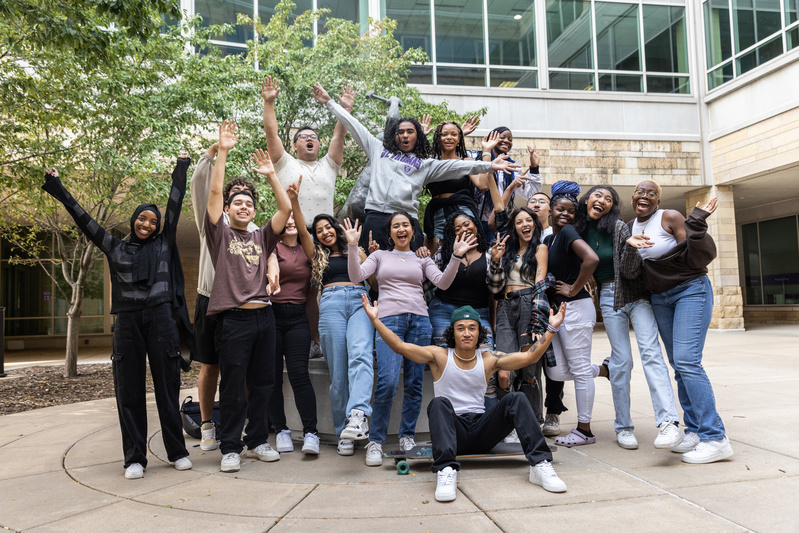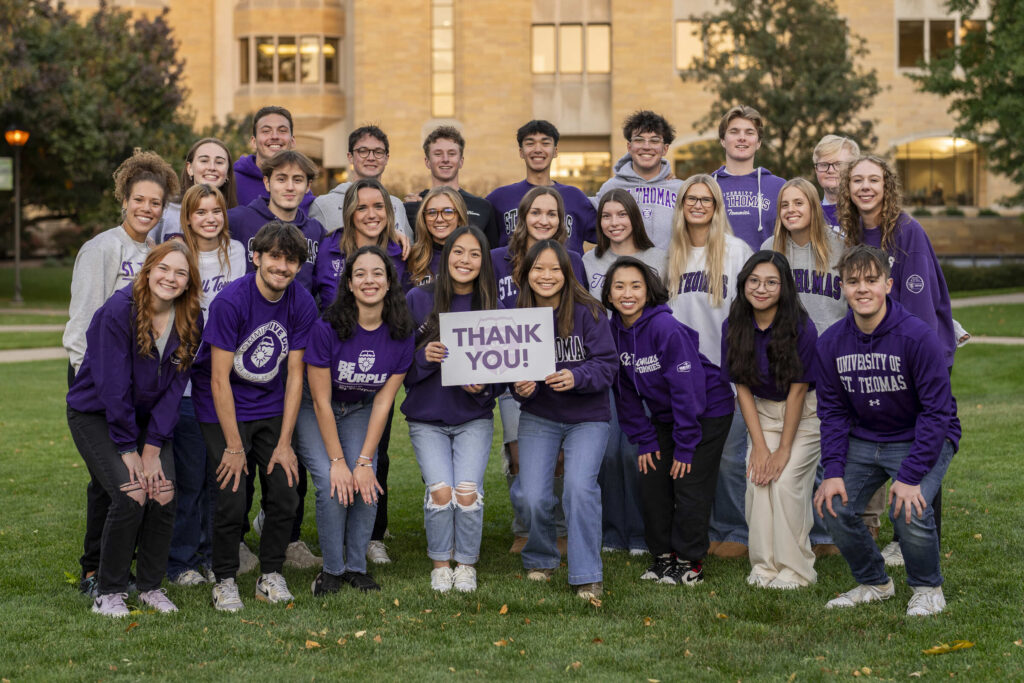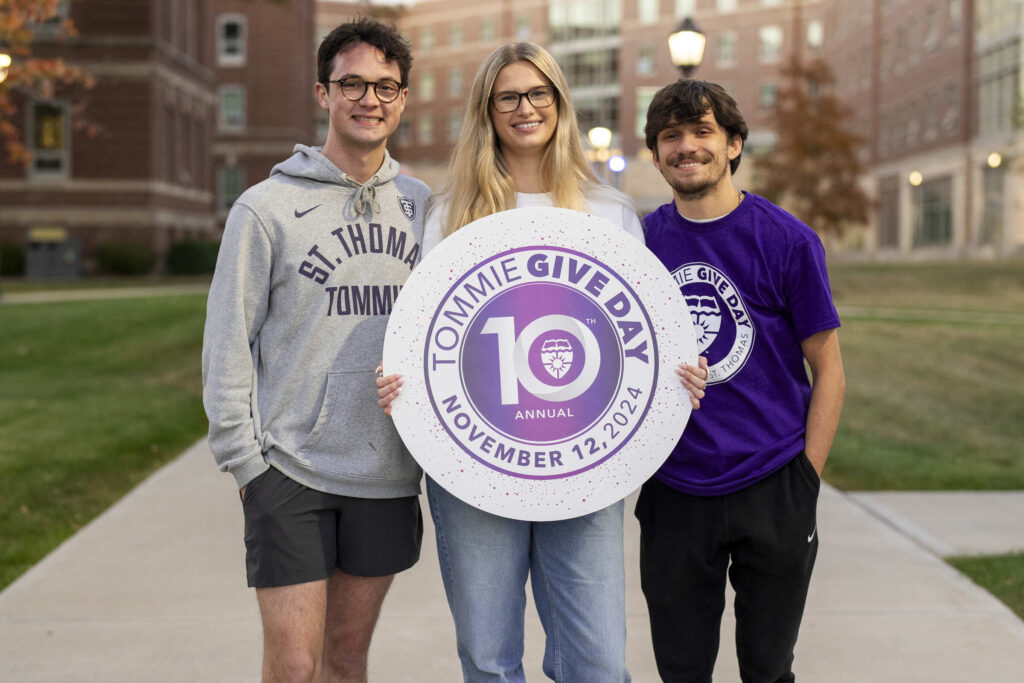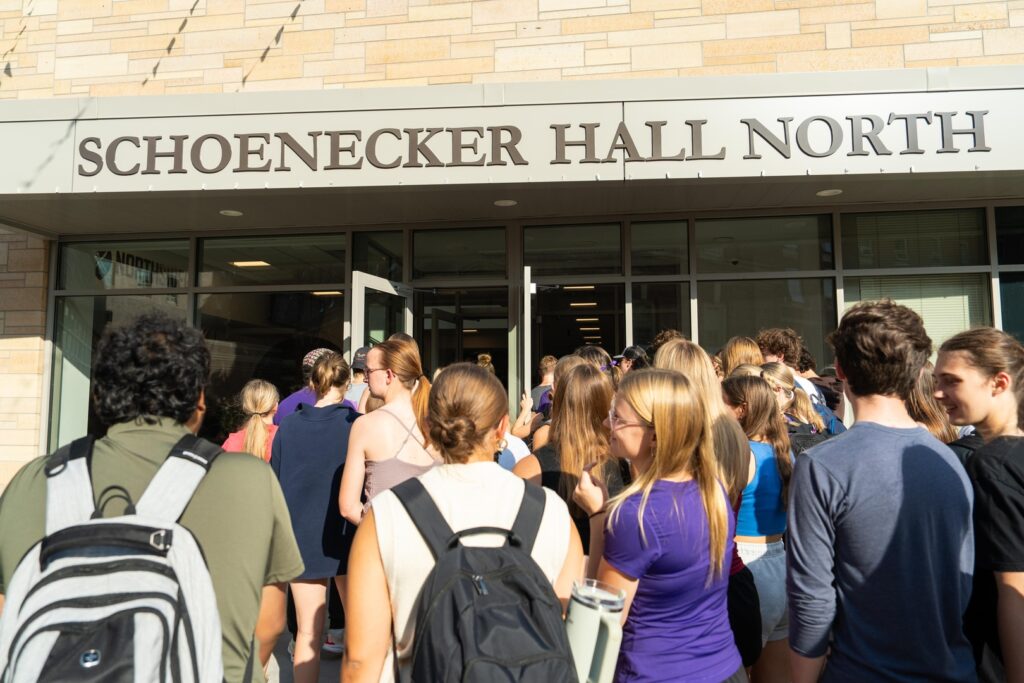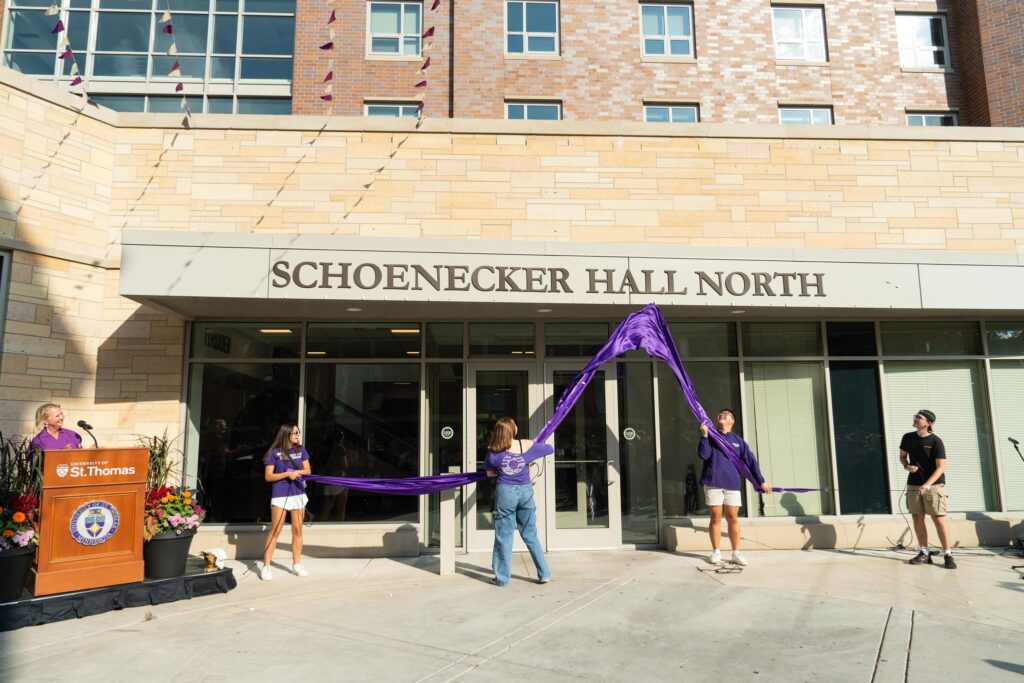Matching challenge seeks $20M total to fund student education in perpetuity
An anonymous $10 million gift to the University of St. Thomas will help students who attend its Dougherty Family College (DFC) in Minneapolis obtain their associate degree. The gift, tied for the largest in the five-year-old school’s history, is expected to drive further gifts by other donors.
The donor has put forth a challenge, asking for other donors to help the university raise a matching $10 million, bringing in a total of $20 million by the end of the academic year. That amount will see to it that higher education will be more attainable for more students from underserved communities for generations to come.
“This donation, and the matching dollars that it generates, will ensure that DFC is forever a driving force in our community,” said Carol Frey Wolfe ’83, a St. Thomas alumna who serves on DFC’s 17-member advisory board and as a member of the St. Thomas Board of Trustees. “It will close the education and prosperity gap for 300 students every year, in perpetuity,” she says. The two-year school aims to enroll 300 students total, at 150 scholars per class year.
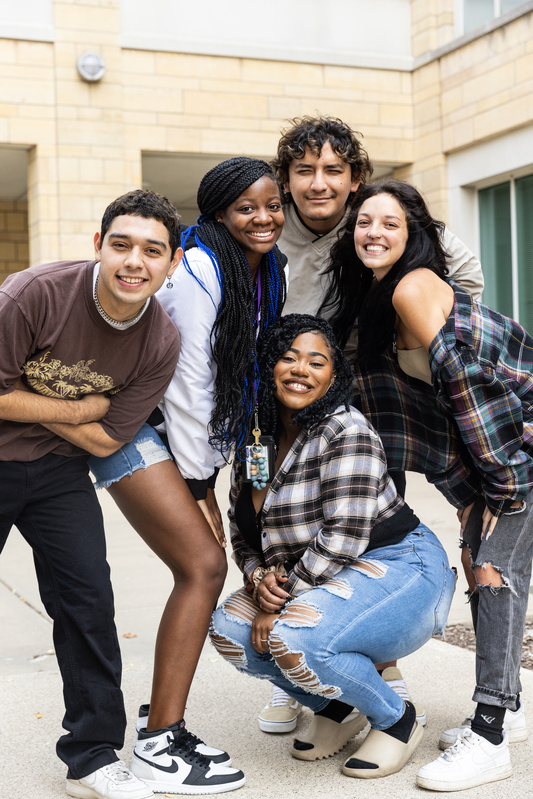
More than 80% of DFC scholars are first-generation college students and more than 90% are students of color (BIPOC). Nationally, these two demographic groups are the most impacted by student loan debt. For example, Black families are 1.3 times more likely than white families to have student debt, and they have balances that are 1.7 times higher than those of white families, according to analysis by McKinsey & Co. Reducing student loan debt for people of color will help close the racial wealth gap, according to the Brookings Institute.
Last year, 92% of DFC graduates were debt-free upon graduation at a time when student loan debt challenged many across the country. Thanks to generous scholarships in combination with federal Pell grants, the annual cost of attending college at DFC has averaged around $2,970 per student, with more than half paying only $1,070 for the academic year. This amount includes meal plans, transportation (Metro pass) and laptops, in addition to books, tuition, tutoring and mentoring. The $20 million will allow the college to continue providing these services and scholarships.
“Six years ago, Dougherty Family College made a promise to minimize the financial, academic and social barriers for scholars from BIPOC and underserved communities to earn their associate degrees and provide them with a seamless pathway to their bachelor’s degrees,” said Dean Buffy Smith, who was a founding associate dean before being promoted to the top post this year. “Today, we are fulfilling that promise.”
Wolfe, who is director of the Frey Foundation founded by her parents Gene and Mary Frey, said whenever their family foundation funds education, it is directed at students who are first-generation, students of color.
“The reason why I feel so passionate about DFC is that this unique model is really working,” she said. “When a potential student shows that they have the drive to succeed, DFC provides all the wrap-around services necessary to help each student reach their ultimate goal of a 4-year degree. This college is revolutionary in so many respects.”
Minnesota-headquartered Fortune 500 companies, including 3M, U.S. Bank and Target are sponsors of Dougherty Family College and provide internships for students, as do several other companies and organizations in town, such as Castlelake, SPS Commerce, Ryan Companies and Rochester, Minnesota-based Mayo Clinic.
“These students are our future leaders and so an investment in Dougherty Family College is an investment in our region,” U.S. Bank’s Chief Diversity Officer and Senior Executive Vice President Greg Cunningham said. “It's an investment in our communities and it's an investment in all of our futures.”
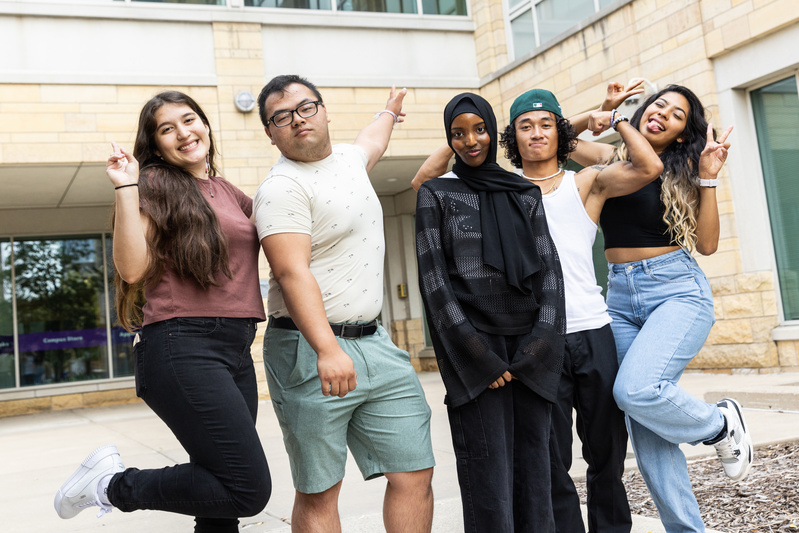
Minnesota has one of the largest racial wealth gaps in the country, ranking third worst, according to some studies, and one of the worst education achievement gaps that’s not confined to race, but also manifests between low-income white students compared to higher-income white students, according to the Federal Reserve Bank of Minneapolis. A cohort program such as DFC – one of only a few in the nation affiliated with a private bachelor’s degree-granting university – strives to close those gaps by offering the students the whole-person support they need.
“There's no shortage of talent (among DFC scholars),” Cunningham added. “What we have is a shortage of pathways to real opportunity for everyone and that's what this work is all about.”
The average two-year graduation rate at Dougherty Family College is 56%, almost twice the 3-year graduation rate of Minnesota community colleges, which sit at 31%, Smith said. The DFC model is working, as 75% of all DFC scholars who matriculate are enrolled in a four-year program.
“Dougherty Family College Scholars are resourceful, resilient and persistently defy racial and socioeconomic barriers every day they come to class,” Smith said. “They represent the best in us and everything that is good in society. This generous gift will transform the lives of our scholars and their families for generations to come.”
To learn more about the Dougherty Family College, visit dfc.stthomas.edu or to learn more about the challenge match or to make a donation, contact Emily Wingfield, director of development.
Related DFC Content

Corporate Partner 3M Opens Doors to Dougherty Family College Students
St. Thomas 2025 - Expand Pathways through the Dougherty Family College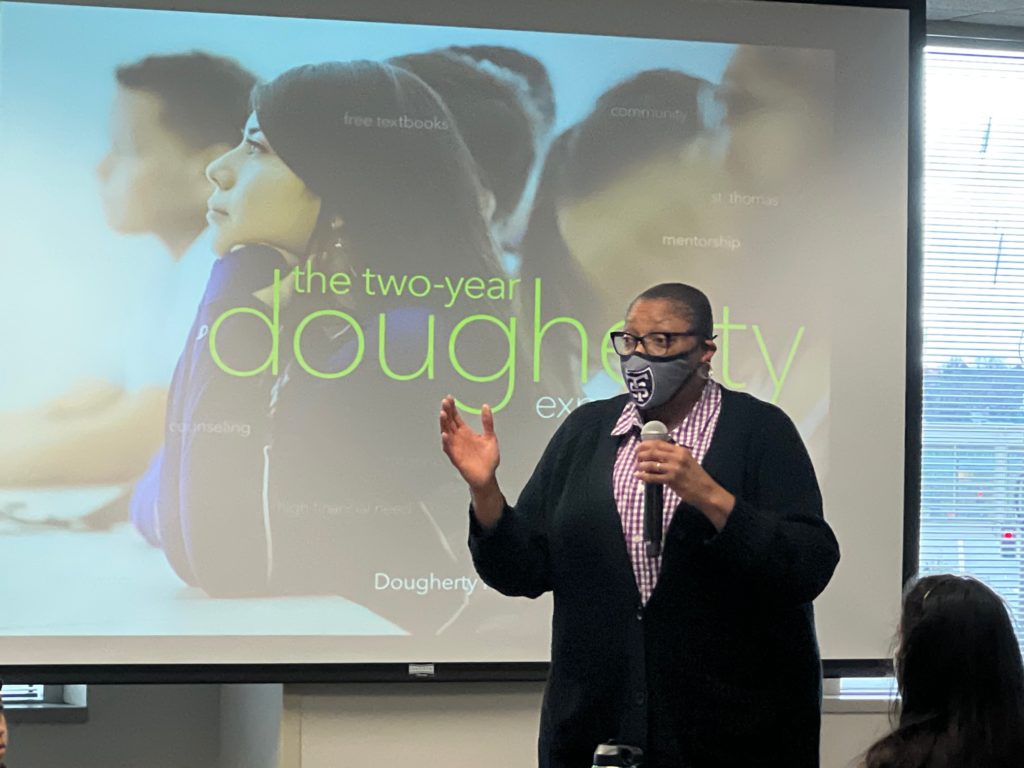
Dean Buffy Smith and DFC's Strategic Priorities
St. Thomas 2025